I'm a beginner in iPhone development and I tried to create an ipa with my profile and valid certificate but xcode is creating a generic xcode archive file instead of iOS app archive because in my code there are two .xcodeproj in there.
And from one of the stack overflow answer I followed the following steps:
- Skip install is NO for the main project target
- Skip install is YES for framework (sub-projects) targets
- Sub-projects need to have Copy Headers in Project not Public
- Installation Directory under Deployment is valid (/Applications for example)
But I'm still not getting the solution.

